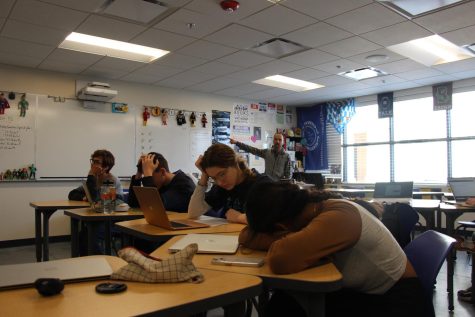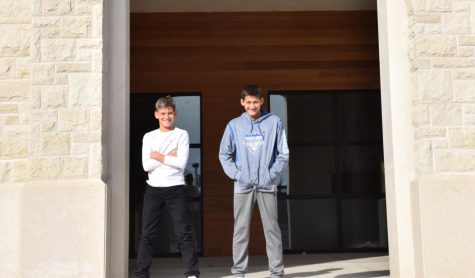BSA POV: ChatGPT
January 26, 2023
As technology continues to advance, a new tool has emerged that is causing a stir in the education sector. An Artificial Intelligence language model, Chat GPT, has the potential to revolutionize the way students learn.
ChatGPT is a language model developed by OpenAI that can understand and generate human-like language. It is based on deep learning algorithms and has been trained on a large dataset of text data, allowing it to understand and respond to natural language inputs. It can be used in a variety of applications such as customer service chatbots, language translation, and even creative writing.
By the way, that intro was written by Chat GPT itself when asked to “create an intro to a journalistic article about Chat GPT.” This technology is something previously only seen in “Star Trek” or “The Avengers,” but now we have access to it in real life. Strangely enough, the conversation in the current zeitgeist only seems to be its potential effects on English education in schools.
This raises questions: “Is this the end of the English department?” and “Is writing itself becoming obsolete?” asks faculty member Matt Patterson. Many people seem to be mostly concerned about ChatGPT doing kids’ homework for them, but Patterson says that his main concern “Is mostly about perception. Are people generally going to start thinking that they don’t have to learn writing anymore because they can get the AI to do it for them?” He says that over the holidays he had a conversation with a “family member with a master’s degree,” and that they said, “‘I don’t understand why people would need to learn how to write anymore.’ I don’t even know how to respond to that,” says Patterson.
It might not be as much of a risk to academics as many people might think, though. “I found that the responses that it generated for the essay [the junior class] just did were pretty generic. I’d give it a B-,” says Patterson, “I’ve seen ChatGPT produce some pretty good essays, but they’re lacking something.”
“It’s not very good at math. Let me tell ya, it does not know how to find critical points very well,” says junior Xiang Zhang, when asked about ChatGPT’s applications. The consensus seems to be that, in its current state, ChatGPT might not be that ‘instant homework button’ that some people seem to think that it might be.
ChatGPT and other similar AI-based programs are bound to get much stronger, though. “You have to consider that this is like a beta product. This isn’t something that they’ve even released officially as a product. This is kind of the beginning,” says Zhang. This is the very first iteration of this technology, and there are a few reasons why it is likely to improve at an exponential rate over the next few years or even months.
One reason is that it does not even have access to the internet yet. Everything that it knows is based only on the dataset that it was trained on, which only includes information up to early 2021. Once it can utilize the internet, its knowledge of the world will expand dramatically.
The second reason is that the next iteration of OpenAI’s technology is soon on the horizon. GPT-4 will soon take over for GPT-3 (the model that ChatGPT is based on), and it will likely be hundreds of times smarter than the current iteration––not just in how much it knows, but how capable it is. The field of AI training is so new and so rapidly advancing that even though GPT-3 is only two years old, it is likely leagues behind what a bot trained today might be capable of.
As this technology gets better, we will all need to adapt to its use in our lives. “I assume it’s gonna get better…English teachers will have to think about ‘what do my students need to know’ and ‘why do they need to know it.’ It’s gonna change some of the answers to that,” says Patterson. “The ‘stick your head in the sand’ approach is not going to work. We are going to have to use it as much, or more, than the students themselves.”
According to Zhang, “What I do know is that ChatGPT and these technologies will completely change a lot of things…This is just something we will all have to adapt to.”

